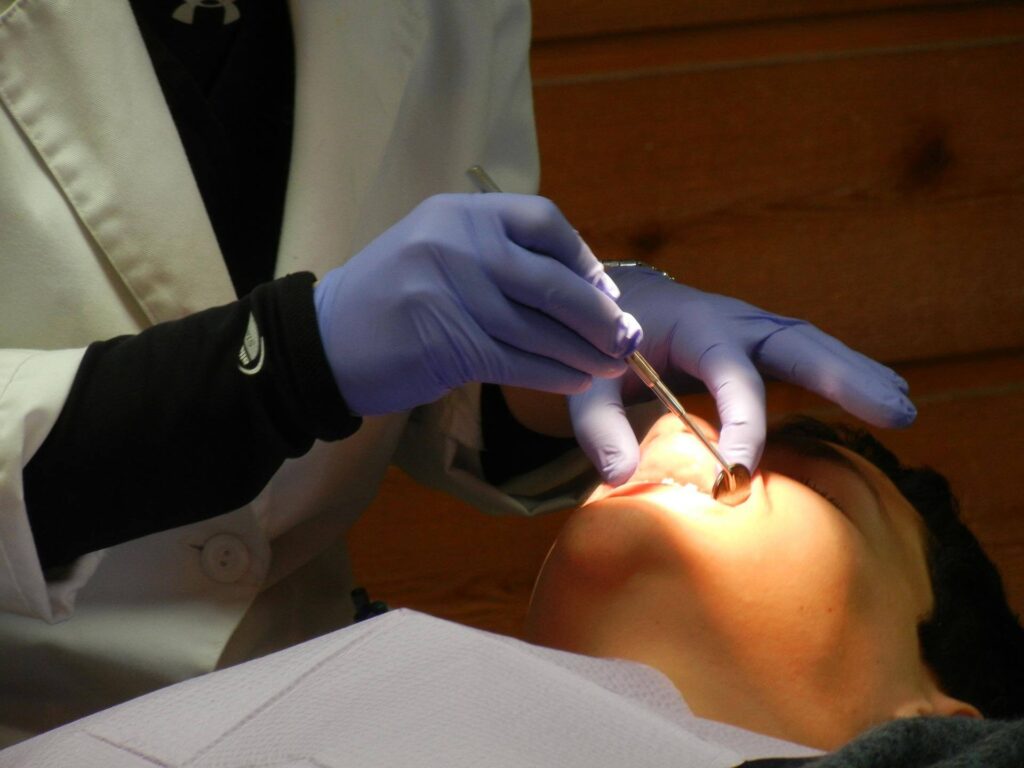Adult permanent teeth should never be loose, the big concern for this is because you only get one set of permanent teeth. If a tooth is loose, it has lots of potential fall out, there is also could mean that there is an underlying issue as the cause for your loose tooth or teeth.
Loose Teeth Symptoms
If you have a loose tooth as an adult, you’ve probably experienced these symptoms as well:
- Bleeding gums
- Swollen gums
- Red gums
- Gum recession
If you do have a loose tooth or teeth, you should make a dentist appointment immediately, and you should treat it as an emergency situation.
Loose Teeth – What Causes Them?
There can be a number of causes that contribute to loose teeth. If you happen to notice it while brushing or flossing, you should not ignore it, you should also be very careful so you do not cause it to become more loose by agitating it.
A common cause for loose teeth is gum disease, if you ever notice that your gums are redder then normal, inflamed, swollen, or painful then it is typically a sign that you have gingivitis. Early gum disease can often be reversed by having more strict dental hygiene practices. However, if the symptoms have persisted for a while, the gingivitis may become advanced, this can lead to periodontitis. Periodontitis is much more difficult and can regularly result in tooth loss.
The dentist can also measure how advanced the gum disease is by measuring the pocket depth in your gums. The gum pocket depth will inform the dentist of how advanced the issues are.
Gum disease, however, isn’t the only cause of loose teeth, here are a couple other common causes:
- Teeth Grinding (Bruxism) – Bruxism can happen even when the person is entirely unaware that it’s happening. Bruxism can be triggered by stress, or it can be habitual. The dentist will be able to tell if you are affected by teeth grinding and may even recommend you sleep with a mouthguard if it occurs during the night.
- Injury (Trauma) – Physical trauma is regular cause for loose teeth. Impacts directly to the face or jaw area are common culprits for this. If you are participating in these activities you should be wearing mouthguards.

Loose Tooth Treatments
There are a number of treatments aimed at securing loose teeth back into place. The treatment chosen for you will largely depend on why the tooth became loose in the first place. A common treatment for advanced gum disease is scaling and root plaining. This treatment stretches the gum back into places, and it is then smoothed out onto your teeth so it is fitted securely.
Other treatments include:
Flap Surgery
The surgeon will make an incision the gum tissue so it is able to be fitted back over the tooth.
Bone Grafting
If the tooth loss is due to the loss of bone, the surgeon may graft bone from another area of your body to support your teeth.
Splinting
If the tooth has yet to fall out completely, a dentist or doctor can use metal to splint it back together and this will reinforce it.
Bite Adjustment
If your tooth is loose because of a miss-aligned bite, an adjustment to your bite may allow it to recover and heal back to normal.
Mouthguards
To prevent your bruxism from causing more issues, a mouthguard may be issued.
Loose Tooth Risks & Complications
These include:
- Infection
- Dry socket
- Speech impediment
- Teeth moving out of position
- May be left feeling self-conscious about your smile
Frequently Asked Questions
How much does it cost to repair a loose tooth?
Since there are many different treatment options, the cost will come down to which treatment the dentist recommends. Your insurance may or may not cover the procedure so you will want to verify this first.
What's the best prevention for gum disease?
You need to have regular oral care, and you should get your teeth checked regularly at a dental appointment.
